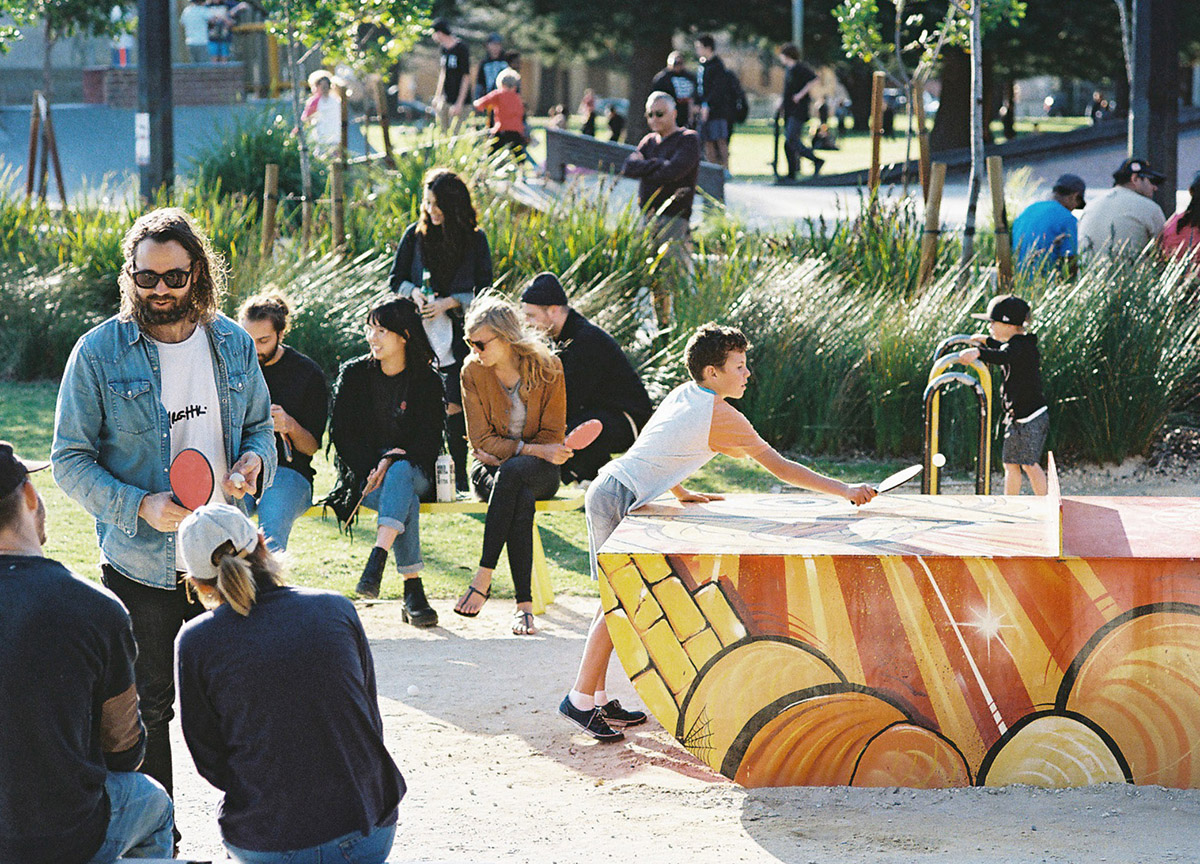The Power of Parks to Promote Health

Can parks improve health outcomes? How can communities be more successful in doing so?
Read on to know why and how park administrators and health professionals can incorporate parks as part of a holistic public health strategy.
IMAGE CREDIT ABOVE
Location: Esplanade Youth Plaza, WA
Image Credit: James Whineray
“If we had medicine that delivered as many benefits as parks, we would all be taking it. And they do those things without adverse side effects and at minimal cost.”
Dr. Howard Frumkin - Senior Vice President at Trust for Public Land (TPL)
Each year park systems of the 100 most populous cities in the US are ranked by the Trust for Public Land (TPL). This year the report also included health outcomes of top-scoring cities.
They found cities with the highest 'ParkScore' rankings are healthier places to live. In the 25 top ranking cities people are 9 percent less likely to suffer from poor mental health and 21 percent less likely to be physically inactive than those in lower-ranked cities.
26 of the 100 cities are making a concerted effort to connect healthcare and parks. In these cities healthcare institutions are funding, staffing, or referring patients to health programs in parks to improve patient and community health.
So how do cities best do this? Read on for the 14 practical recommendations to come out of the report.
![]()
Location: Esplanade Youth Plaza, WA
Image Credit: James Whineray
They found cities with the highest 'ParkScore' rankings are healthier places to live. In the 25 top ranking cities people are 9 percent less likely to suffer from poor mental health and 21 percent less likely to be physically inactive than those in lower-ranked cities.
26 of the 100 cities are making a concerted effort to connect healthcare and parks. In these cities healthcare institutions are funding, staffing, or referring patients to health programs in parks to improve patient and community health.
So how do cities best do this? Read on for the 14 practical recommendations to come out of the report.

Location: Esplanade Youth Plaza, WA
Image Credit: James Whineray
- Ensure everybody lives within a 10 minute walk of a park (and that these parks are safe, activated, and high quality)
-
Prioritise capital improvements and engagement with communities that have been historically underserved (ensuring community perspectives are centered in decisions)
-
Bring people to your parks and natural attractions through transit connections and guided trips
-
Bring parks and park activation to the people through pop-up activities and mobile offerings
-
Offer all-ability or "try before you buy" fitness and wellness programs explicitly designed for beginners
-
Encourage park visitors to try something new with low-commitment offerings such as drop-in sports or free or low-cost gear rentals
-
Make it easy for community groups to use parks and recreation facilities as their primary gathering venues
-
Install and maintain the amenities most strongly associated with increased physical activity (sports fields, walking trails, playgrounds, fitness zones)
-
Refer, prescribe, or host patients with health programming in parks and recreation facilities (a gentle nudge from a doctor and a prescription to spend more time outdoors can be surprisingly motivating)
-
Sponsor the costs of wellness programs, sports leagues, and other health classes as part of any free fitness membership benefit
-
Invest in capital improvements in parks as community health investments
-
Work with parks and recreation agencies to map and identify park deficits as part of Community Health Needs Assessments (all nonprofit hospitals are required to conduct these every three years)
-
Continue to partner with parks and recreation agencies to reach key patient populations with health services and education
-
Partner with parks and recreation agencies to evaluate the impact of park initiatives on key patient and community health outcomes to help close the gap in healthcare institutions seeing parks as an evidence-based treatment
Each of these recommendations are expanded in the full report (The Power of Parks to Promote Health) where even more practical tips for achieving higher health and engagement outcomes for communities are provided.
If you would like to have a chat to one of our team about how a permanent outdoor ping pong table could be part of your community's park and health strategy please get in touch via email at [email protected]
